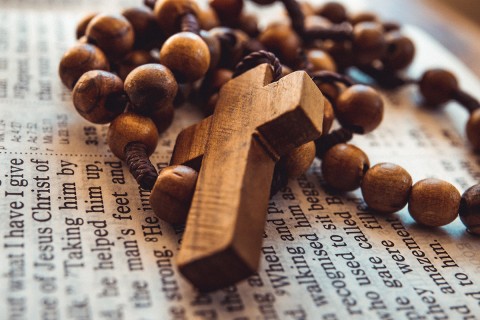Don’t tell my Pentecostal mom, but I pray the Hail Mary
My Grandma Violet was the black sheep of our family. I think of her when I pray.

Hail Mary, full of grace, the Lord is with you. Blessed are you among women, and blessed is the fruit of your womb, Jesus. Holy Mary, mother of God, pray for us sinners now and at the hour of our death.
Don’t tell my Pentecostal mom, but I often pray this prayer. I click the beads on the olive wood rosary I keep in my pocket, bought at a Franciscan retreat center in the hills outside San Francisco. Franciscans can be tricky that way. And by tricky I mean welcoming. Like the prayer itself. Like how I imagine Mary, her old eyes rheumy as my Grandma Violet’s, her cigarette voice raspy as she says the kettle just went and why don’t I make us a cup of tea.
The way I imagine Mary makes me less nervous than the prayer itself. I’ve only ever whispered it in secret. Until now, of course. But I’ve spent a long time wondering why it means so much to me, and why I am reaching for it again this dark winter.




